12 Beginner RV Tips for a Successful First RV Trip
2021 is going to be the year we see more people than ever hit the road for their first RV trip. The RV industry is booming! In a year where many businesses were struggling, RV manufacturers and suppliers saw historic production numbers. Americans have flocked to RVs as a safe way to travel and vacation despite the covid-19 pandemic. Many dealers are even having trouble keeping inventory on their lots.
We know that RVing for the first time can be a bit intimidating. It can be a lot to take in and learn before you even head out for your first camping trip! But as a full-time RVer of nearly 2 years now, I can assure you that the uneasiness you might be feeling will soon turn to excitement and enthusiasm as you gain more experience.
Since there are so many RV beginners out there we wanted to share some some tips to help you have a successful first trip with your RV!
This post contains affiliate links. If you make a purchase through one of our links we may make a small commission at no extra charge to you. Thanks!
Table of Contents
1. Camp Close to Home the First Few Trips
You finally got your RV and you’re ready to hit all those bucket list destinations… Slow your roll for a second. While it can be tempting to head out to a spot you’ve been dreaming of camping at, you may want to consider camping close to home for the first couple trips. This will allow you to get familiar and comfortable with your new RV and learn the ins and outs of how to operate everything. It will also give you a chance to figure out what kinds of things you’ll need to bring with you on your trips. If you do happen to forget anything you’re already familiar with what’s in the area or can even make a quick trip home if needed.
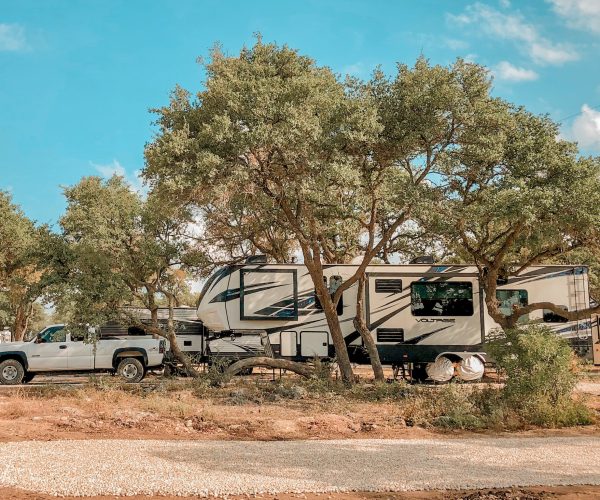
2. Stay at a Trusted Campground With Good Reviews
Checking reviews of a campground before you book can help save you from some headaches when you arrive. You’ll already know what you’re getting yourself into. If you’re camping close to home, you may even be able to scope out the campground ahead of time. I would suggest trying to book a spot with full hookups (water, electric, and sewer) so you can learn your family and RV’s needs and capabilities. You might even consider booking a pull through site until you feel more comfortable backing in.
3. Plan Your Route
Route planning for RVs isn’t as simple as plugging your destination in the GPS and going. Things you need to keep in mind when planning a route include:
- low clearances
- bridge weight limits
- steep mountain passes
- propane restricted tunnels
There are some great apps out there that can help with planning out your routes!
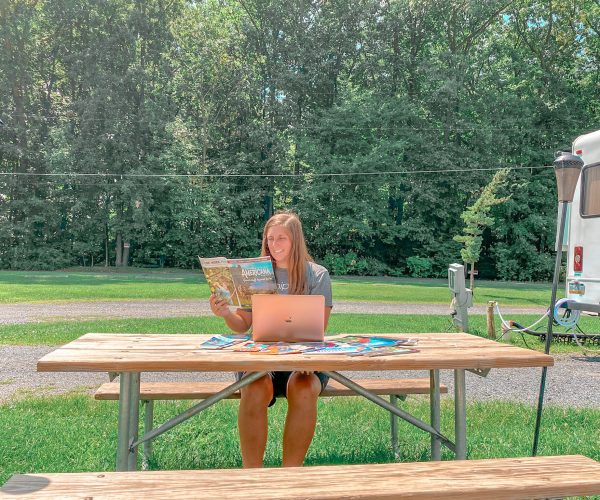
4. Check the Weather
Check to see what the weather will be like for your first trip out. You don’t want to be trying to back in your RV and set it up for the first time when it’s pouring rain for instance. With more experience this won’t be as much as an issue but for your first trip out you’ll already have enough on your mind- the weather doesn’t need to be one of those things.
Weather isn’t something many Rvers think much about. Check out our Tornado Preparedness for RVers post here.
5. Have a Checklist
Having a checklist and following it is super important! There are so many things you need to do to even get the RV ready to hit the road. If you miss a step something could break or even worse you could be putting yourself and others in danger.
My friend Janae created a Free Printable RV Pre- Travel Checklist. It’s a great place to start if you’re worried about remembering everything you need to do on a travel day. My favorite thing to do is take a list like the one I mentioned and plug it in as a checklist on my phone. Then I can just check it items off on my phone as I go.
6. Arrive Before Dark
Even as experienced, full-time RVers this is a rule we set for ourselves. Navigating down unfamiliar roads and though campgrounds is not fun in the dark. Setting up in the dark without much lighting just makes the process more difficult and slower too. Sometimes things happen and you’ll arrive later than expected. Make sure you at least have some sort of lights or flashlights on hand to help you get set up.
7. Bring a Toolkit + RV Essentials
Be prepared with a toolkit and other RV essentials on your first trip out, you never know what might happen. Things break and need fixed from time to time (even on new RVs) so it’s important to at least have some basics on hand.
Tools To Keep Handy
Below are some basic tools you’ll want to keep on hand while you’re on your RV trip. Check out RV Toolkit Essentials post for even more items to add to your toolkit!
- Tape Measure
- Tire Pressure Gauge
- Screw Driver Set
- Air Compressor
- Torque Wrench
- Level
- Plier Set
- Drill
- Duct Tape
- Zip Ties
- Jack Stand & Jacks
- Lug Wrench
- Socket Wrench Set
- Bungee Cords
- Hammer/Rubber Mallet
- Multimeter
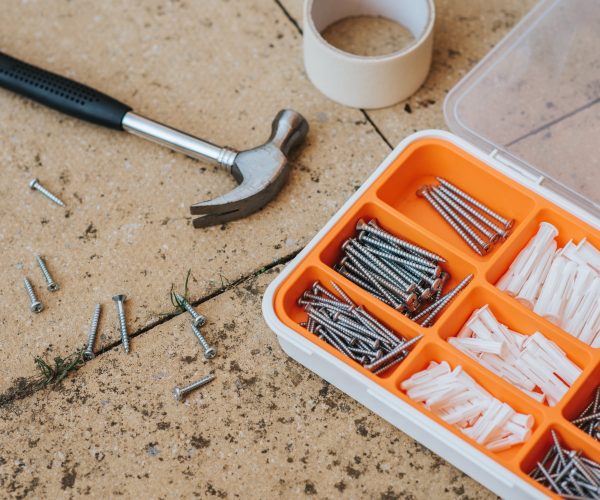
Basic RV Essentials
The list below is the bare minimum you’ll need to get your RV setup on your first trip.
- Sewer Hose
- Drinking Water Hose
- Garden Hose
- Leveling Blocks & Wheel Chocks
- Septic Safe Toilet Paper
- RV Toilet Treatment
8. Communication is Key
Communication is key, especially if you have a big rig! The driver is most likely not going to be able to see everything as they’re backing up so it’s important to have a second set of eyes on things. The spotter will need to get out of the vehicle. You’ll always want to stand within view of the driver and be in constant communication with each other. Some people use walkies, we personally tend to use our phones, other people just shout out each other and do a bunch of crazy hand signals. Getting out and helping keep an eye on things will save you from hitting things, bottoming out etc.
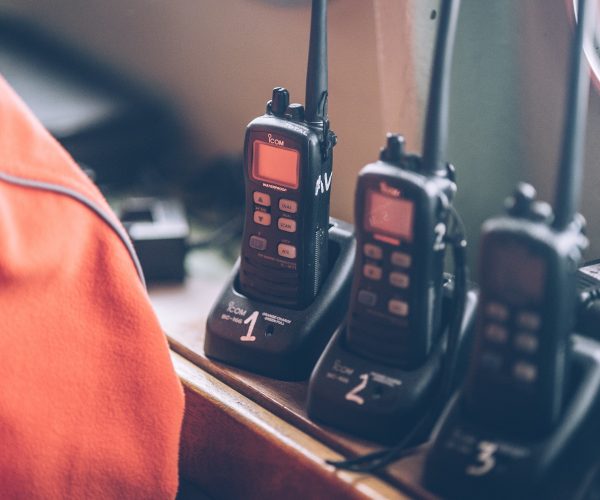
9. Don’t be Afraid to Ask for Help (or say no to help)
The RV community is full of the kindest people who go above and beyond and are willing to help out when needed. New RVers can sometimes be easy to spot, so don’t be surprised if you have someone asking if you need a hand with something. Never be afraid to ask for help! More than likely the person you ask will be glad to give you a hand, we’ve all been a new RVer at one point or another.
Along the same lines, sometimes people offer unwanted help. It’s okay to politely say “We’re new to this and still learning. We’ll let you know if we need any help.” Just know you’re not obligated to accept anyone’s help. You can always politely decline the offer.
10. Don’t be Afraid of the Black Tank
One of the things we hear a lot from new RVers is that they are nervous about dumping the black tank. I totally get that, dealing with poo is a dirty, nasty job. But I’ll let you in on a little secret… It’s really not that bad. Dumping your tanks can be a little intimidating the first couple times you do it (especially if you have a line of RV’s waiting behind you at the dump station) but with time it’ll just become part of your RV routine. Just make sure you have some gloves handy!
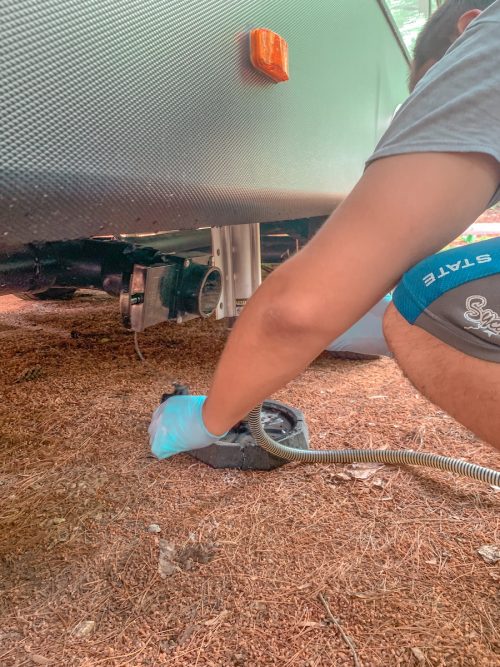
11. Expect the Unexpected
Things will inevitably go wrong. Maybe you get a flat tire and arrive later than planned to your destination. Or maybe someone forgets to lock a door and it comes flying open as you’re driving (ask me how I know about this one). While things that go wrong are frustrating in the moment, try not to dwell on mistakes and mishaps. Do your best to trouble shoot the situation and move on. Letting these things get to you and ruin your trip would be the real mistake.
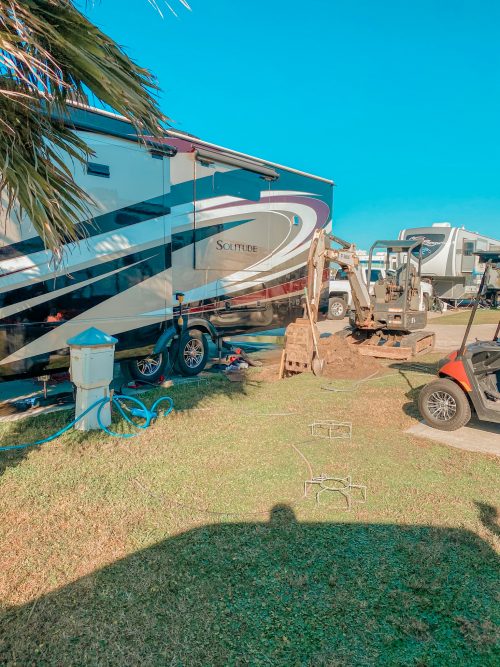
12. Go Slow and Take a Deep Breath
Mistakes tend to happen when you’re in a rush. Take your time, go slow, be patient with yourself, and take a breath. Keep in mind that you’re new to this and still learning. Eventually, things will get easier.
When you do finally get the hang of driving, operating, and maintaining your new RV, just think of all the places you can travel across America in your RV. The possibilities are endless! Taking the time to learn about your RV and become comfortable with it will be well worth the effort.
Safe travels,

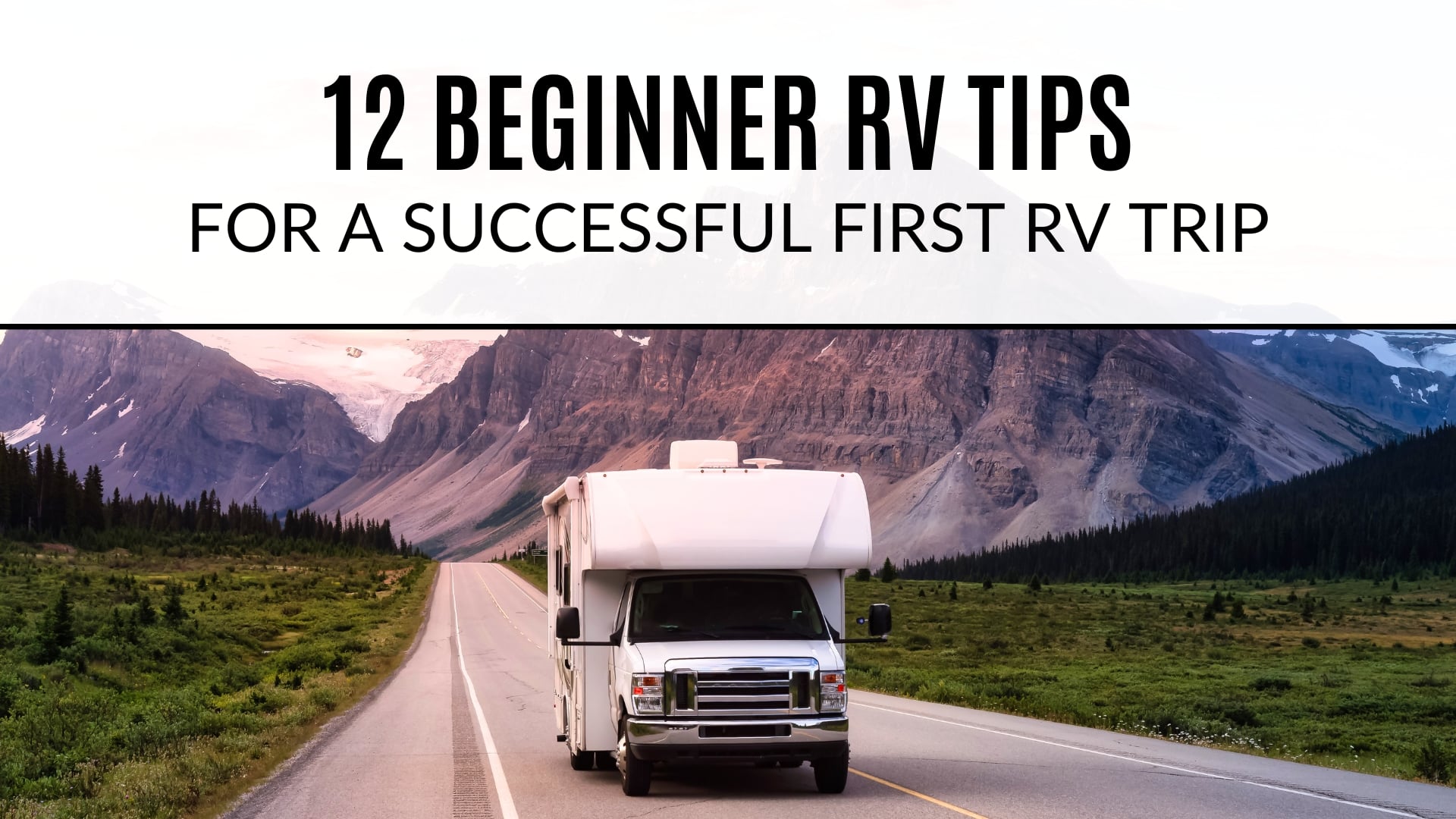
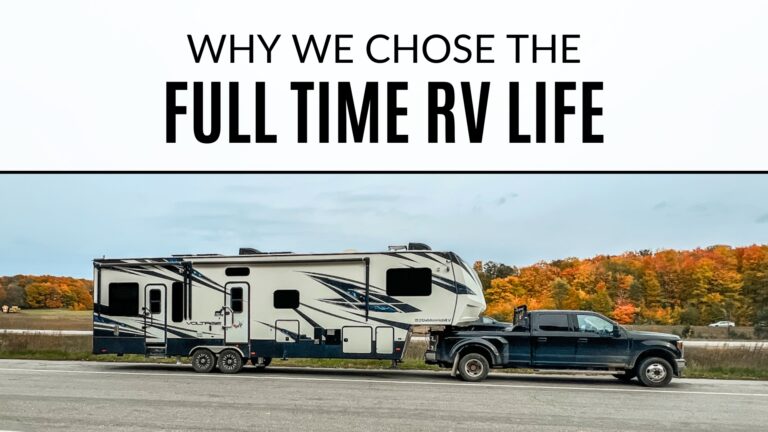
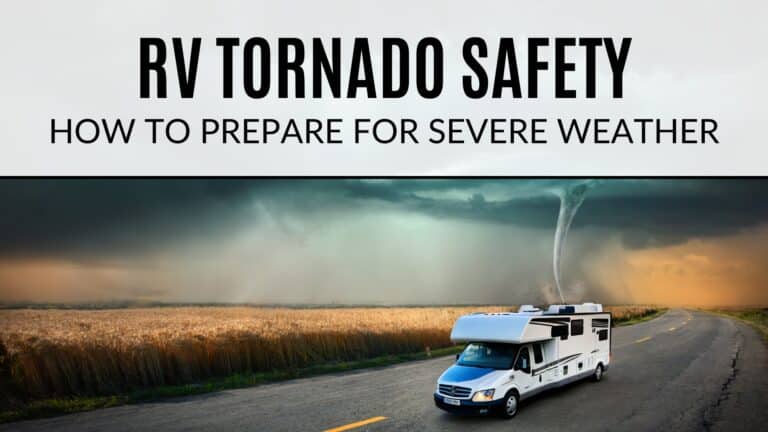
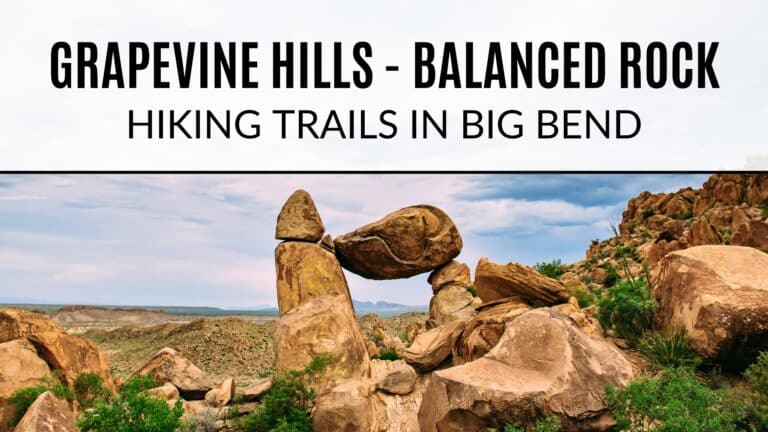
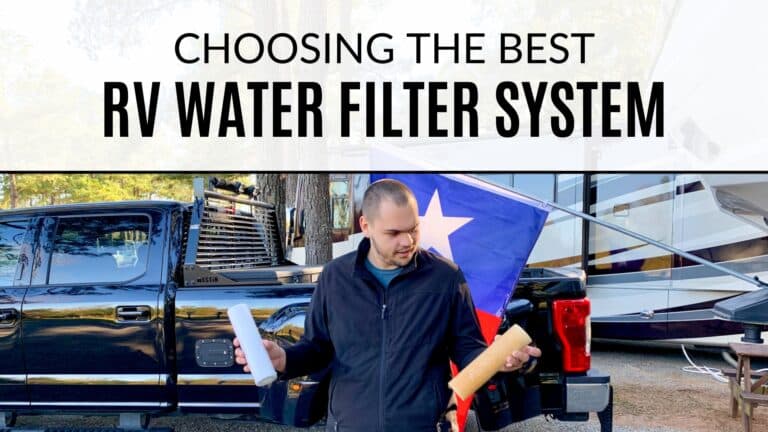
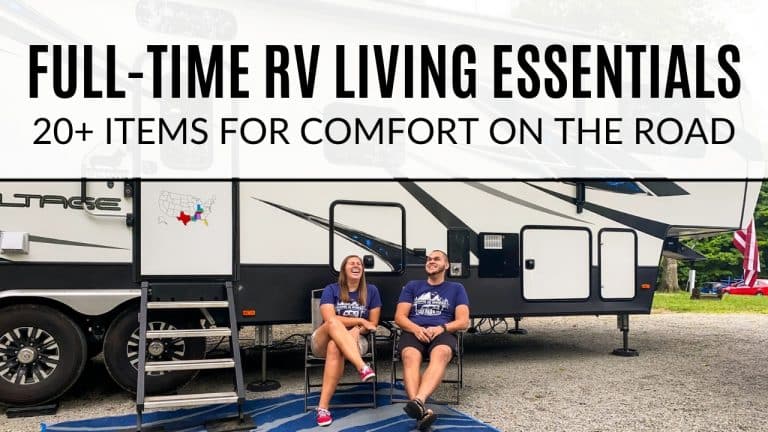
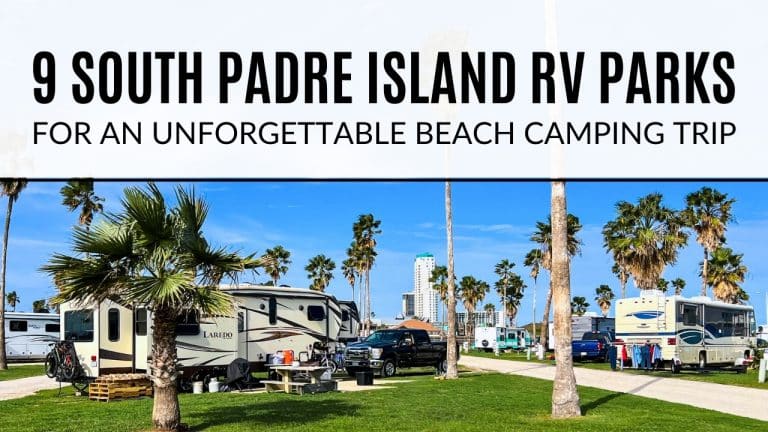
I couldn’t agree with this more, Megan! You don’t know how many times people just ran over to help us park, (once asked to drive while our kids were in the car lol–they didn’t lol). We were also shy to say that we were good, but we needed to learn to communicate just the two of us lol!! Such sweet people tho!
Yes! It can be hard to say no especially when they’re just trying to be nice and help. We’ve found that giving them a specific task (like keep an eye on that tree or picnic table) helps to keep them out of the way but still makes them feel like they’re helping (if you have a hard time saying no thanks). ☺️
This is SO helpful for Newbie RVers! Great advice, thanks for sharing!
Thank you!! I wish we would’ve had some of this advice when we were starting out! 😂
Great tips! We stayed close to home when we first got our Rig and it made a big difference getting settled in.
Thank you! We actually took our RV to a campground we had tent camped in so it was definitely nice we were already familiar with it.
I love the advice you’ve given and completely agree with all of it! It’s funny to call out to not be afraid or say no to help. It can be so intimidating to navigate with an RV and the pressure is crazy!
Yes! The pressure is on even more when your neighbors are outside their RV trying to watch you back in too! 🤣
This is SO helpful!! What apps would you recommend for planning your route? That’s the part that’s intimidating me the most😭 also getting to the park before dark is something we will work on😅 we always get in so late I feel like! Thank you for this!
We actually don’t use an app to plan because we do pretty short drives at a time. Typically we take a look at google maps street view to make sure the roads look okay for the RV. I know some people use RV Trip Wizard and the RVlife app to help plan trips, we haven’t tried either though.
All of this advice is crucial and so many tips I wish we know starting out! Arriving before dark and planning out your route are such important steps!